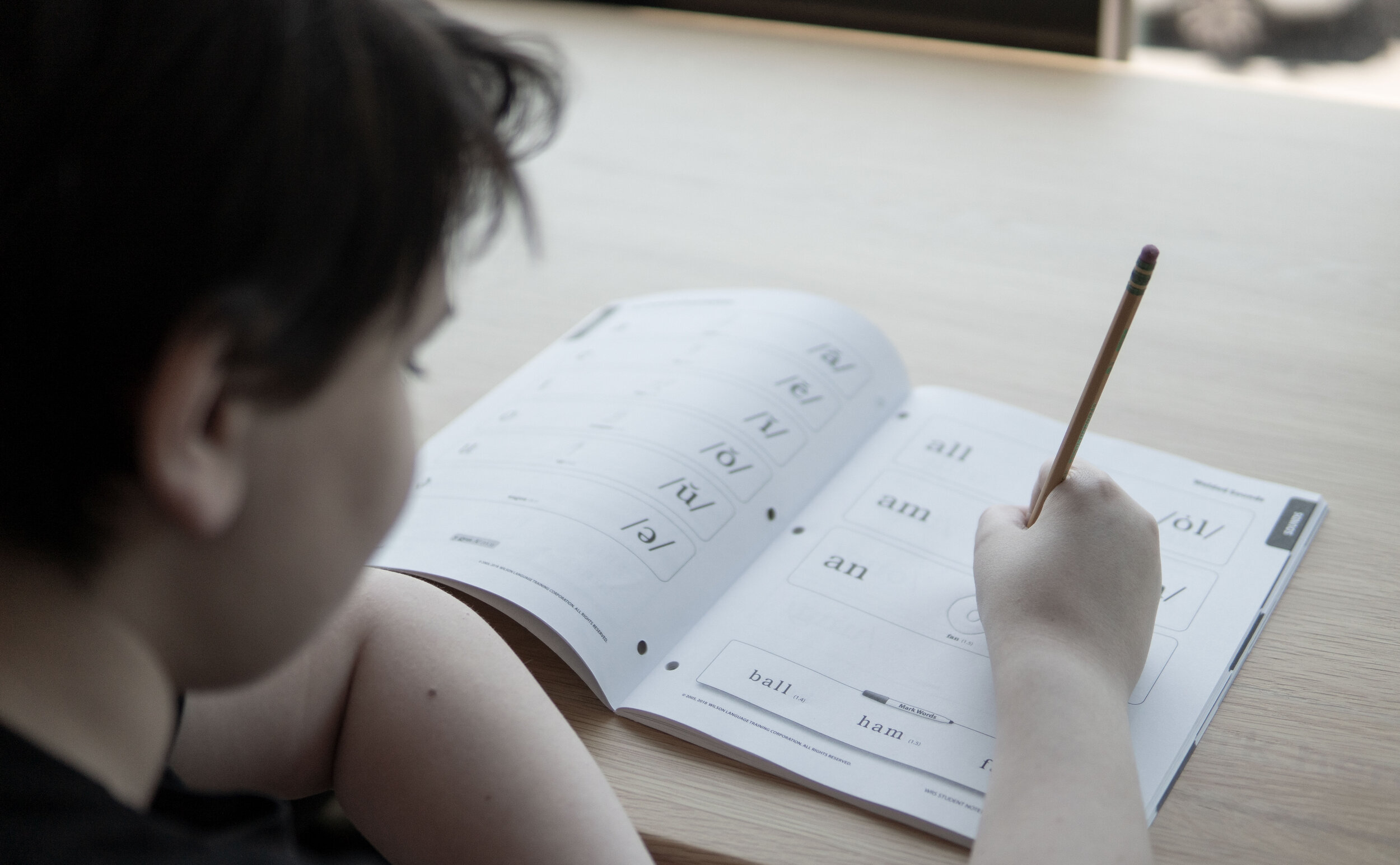
Frequently Asked Questions
Frequently Asked Question Topics
Dyslexia
What is dyslexia?
Dyslexia is a specific learning disability characterized by difficulties in word reading and/or spelling that involve accuracy, speed, or both and vary depending on the orthography. These difficulties occur along a continuum of severity and persist even with instruction that is effective for the individual’s peers. The causes of dyslexia are complex and involve combinations of genetic, neurobiological, and environmental influences that interact throughout development. Underlying difficulties with phonological and morphological processing are common but not universal, and early oral language weaknesses often foreshadow literacy challenges. Secondary consequences include reading comprehension problems and reduced reading and writing experience that can impede growth in language, knowledge, written expression, and overall academic achievement. Psychological well-being and employment opportunities also may be affected. Although identification and targeted instruction are important at any age, language and literacy support before and during the early years of education is particularly effective.”
-International Dyslexia Association (updated definition, October 2025)
My child was diagnosed with dyslexia. Now what?
You are already taking the first steps! There is no correlation between dyslexia and IQ. Your child is just as intelligent, creative and resilient as you have always known them to be. A diagnosis of dyslexia will help you figure out what steps to take to ensure your child becomes a skilled reader. It will also make you and their teachers aware of accommodations they qualify for throughout elementary, middle, high school and college.
Will my child outgrow their reading difficulties?
If your child is affected by dyslexia or another language-based learning disability, it is not something that they will “grow out of.” Fortunately, with proper intervention and instruction they are still capable of becoming fluent, skilled readers.
How long should I expect my child to need intensive reading instruction?
Intensive reading instruction is not a “quick fix.” Assuming an individual receives a minimum of 120 minutes of direct, explicit and systematic instruction it takes an average of 2-3 years to achieve mastery.
Why can’t my child just “catch up” over the summer?
On average, students come in at least one grade level behind in reading. You cannot expect a child who comes twice a week for the summer to learn an entire school year (170+ hours) of curriculum in 20 hours.
My child writes their letters backward, do they have dyslexia?
It is a common misconception that people affected by dyslexia see letters and words backwards. As children are beginning to learn to write, both those affected by dyslexia and those who are not may write letters and/or numbers backwards. This is developmentally normal and seen into second grade.
Dysgraphia
What is dysgraphia?
Dysgraphia is a neurological condition and learning difference in which someone has difficulty with writing for their age level. This can range from issues with the physical act of writing to issues with translating thoughts into written words. Dysgraphia is manageable with interventions that can help you learn new writing strategies.
-Cleveland Clinic
How does Forge Education support children and adults with dysgraphia?
We provide a variety of writing services that can assist with common concerns for individuals with dysgraphia; the physical act of writing and fine motor control, organizing ideas and putting thoughts onto paper in a clear and logical sequence, building foundational writing skills from the sentence level to paragraphs to full essays.
How long should I expect my child to need intensive writing instruction?
Just like reading, writing instruction is also not a “quick fix.” It takes time to learn, improve and master writing skills. The more often a student attends sessions, the more quickly they will progress. We recommend receiving writing services twice a week.
General Questions
Do you accept insurance?
Unfortunately insurance companies do not currently cover reading and writing intervention and remediation, even with a specific dyslexia, dysgraphia or other diagnosis. However, many companies will allow you to use your FSA funds to pay for services. Some private schools also offer tuition assistance for specific remediation services. Our invoices are structured to meet the requirements for reimbursement from eligible sources.
How is Forge Education different from services provided in school?
Forge Education uses data and evidence-based practices and curriculum to help all students achieve. Though many schools have talented, well trained staff and strong curriculum, research shows that this type of intervention is most successful when administered a minimum of 2 times per week for 60 minutes each session. Because of this, many students may require additional remediation to what is provided in school.
How is Forge Education different from other service providers?
At Forge Education we have a team of highly skilled educators who are passionate about teaching literacy. Our individual classrooms provide an ideal environment and tools for teaching and learning. The curriculum we use is in line with the Science of Reading and we ensure that students achieve mastery before moving on. Forge Education is data driven, and we are able to clearly show progress and growth through data collected each session, goals achieved and assessments that demonstrate content mastery.
How often should a student receive services for the best results?
A minimum of 120 minutes a week are recommended for both reading and writing services. Most clients split this into two, 60 minute sessions. The more frequently a student attends sessions, the more quickly they will progress.
What are “evidence-based” practices and curriculum?
Instructional practices and curriculum that are “evidence-based” have a proven success rate when implemented with fidelity.
My child does not have documented disability, but is still struggling. Can you help them?
YES! Our reading and writing intervention programs are designed for each individual student and will address their specific needs.
Can teachers at Forge Education work with younger children? Adults?
Yes. We are able to work with all individuals with reading and/or writing difficulties from ages 4-adult.
